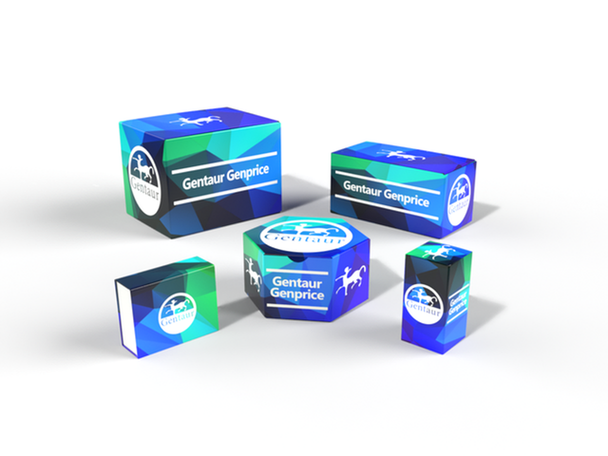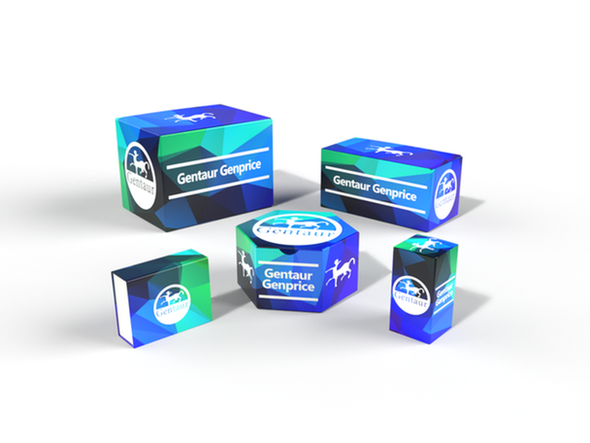Description
FGFR2 Antibody | 13-014 | Gentaur UK, US & Europe Distribution
Host: Rabbit
Reactivity: Human, Mouse, Rat, Monkey
Homology: N/A
Immunogen: A synthetic peptide of human FGFR2
Research Area: Cancer, Cell Cycle, Growth Factors, Immunology, Neuroscience, Signal Transduction, Stem Cell
Tested Application: WB, IHC, IF, Flow
Application: WB: 1:500 - 1:1000
IHC: 1:50 - 1:100
IF: 1:20 - 1:50
Flow: 1:20 - 1:50
Specificiy: N/A
Positive Control 1: HeLa
Positive Control 2: N/A
Positive Control 3: N/A
Positive Control 4: N/A
Positive Control 5: N/A
Positive Control 6: N/A
Molecular Weight: Observed: 97kDa
Validation: N/A
Isoform: N/A
Purification: Affinity purification
Clonality: Polyclonal
Clone: N/A
Isotype: IgG
Conjugate: Unconjugated
Physical State: Liquid
Buffer: PBS with 0.02% sodium azide, pH7.3.
Concentration: N/A
Storage Condition: Store at 4˚C. Avoid freeze / thaw cycles.
Alternate Name: K-SAM, JWS, ECT1, CFD1, CEK3, CD332, BFR-1, BEK, fibroblast growth factor receptor 2 (bacteria-expressed kinase, keratinocyte growth factor receptor, craniofacial dysostosis 1, Crouzon syndrome, Pfeiffer syndrome, Jackson-Weiss syndrome) , FGFR2, KGFR, KSAM
User Note: Optimal dilutions for each application to be determined by the researcher.
BACKGROUND: The protein encoded by this gene is a member of the fibroblast growth factor receptor family, where amino acid sequence is highly conserved between members and throughout evolution. FGFR family members differ from one another in their ligand affinities and tissue distribution. A full-length representative protein consists of an extracellular region, composed of three immunoglobulin-like domains, a single hydrophobic membrane-spanning segment and a cytoplasmic tyrosine kinase domain. The extracellular portion of the protein interacts with fibroblast growth factors, setting in motion a cascade of downstream signals, ultimately influencing mitogenesis and differentiation. This particular family member is a high-affinity receptor for acidic, basic and/or keratinocyte growth factor, depending on the isoform. Mutations in this gene are associated with Crouzon syndrome, Pfeiffer syndrome, Craniosynostosis, Apert syndrome, Jackson-Weiss syndrome, Beare-Stevenson cutis gyrata syndrome, Saethre-Chotzen syndrome, and syndromic craniosynostosis. Multiple alternatively spliced transcript variants encoding different isoforms have been noted for this gene.






